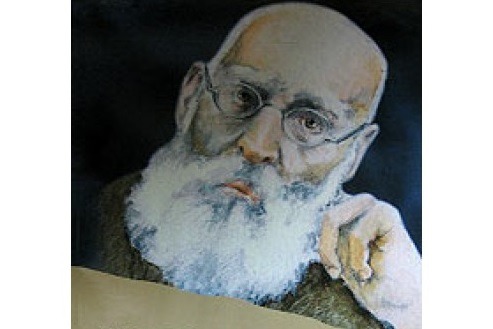
Valeriano Fernandez Ferraz, Philologist, pedagogue, and Spanish university professor, born at the beginning of the second third of the 19th century.
Based in Costa Rica from 1869 to 1882 and from 1891 until his death, the republic to which his three brothers moved. In 1923 they declared him Meritorious of the Teaching.
Biography of the Prócer of teaching.
Born in Santa Cruz de la Palma on April 14, 1831. His parents were his parents José María Fernández Díaz del Castillo and doña María del Rosario Ferraz de Paz.
His primary studies were at the Royal School of Santa Cruz de la Palma, one of the Canary Islands, interrupted his studies in that teaching house when he had to immigrate to the island of Tenerife. Secondary studies were carried out at the Instituto de Segunda Enseñanza in Seville, at the same time taking a Greek Language course at the Escuela Del Ángel.
He studied the baccalaureate in Seville (from 1848 to 1852). After finishing his Baccalaureate studies in Second Education, he left for the city of Madrid in 1853, well recommended by his teachers, to continue his studies at the Central University of the Spanish capital.
Graduated from the University of Madrid with a Doctor of National Philosophy and Letters and a Law Degree, with a complete command of Greek, Latin, and other foreign languages.
He joined the Faculty of Philosophy of the Central University of Spain, where he soon received the influence of Julián Sanz Del Río. It is grouped chronologically, when analyzing Krausism, among the group of his first disciples.
On April 8, 1868, after having held some teaching positions, he was appointed Supernumerary Professor of the Greek Language course at the Faculty of Philosophy and Letters of the University of Seville. Later he was appointed professor at the University of Madrid.
Trajectory

In 1856 he moved into the hectic environment of La Revista Universitaria. Scientific-literary newspaper, dedicated to Public Instruction, a publication that, after some anger and incorporations, was renamed the Revista de Instrucción Pública in January 1857 (whose head will be Valeriano during the 1859-60 academic year).
At the beginning of the 1858-59 academic year, he began to publish the Revista de Instrucción Pública, under the heading Philosophy and signed “By the author, V. Fernández Ferraz”, a copious series of short articles that offer the doctrines of an author whose name is sought to keep it in the shadows (although in fact, it is a Spanish translation of Krause’s Analytic, which will later be attributed to Julián Sanz del Río, inspiring its edition anyway)
On April 8, 1868, after having held some teaching positions, he was appointed Supernumerary Professor of the Greek Language course at the Faculty of Philosophy and Letters of the University of Seville. Later he was appointed professor at the University of Madrid.
In the following decade, he was summoned to Costa Rica by the president of that Central American republic, Jesús Jiménez Zamora, a doctor and statesman who, during his second presidential term (1868-1870), promulgated the law that declared education in Costa Rica free and compulsory.
Fernández Ferraz was requested by Jiménez Zamora to take charge of providing an effective organization to the stammering Costa Rican educational policy. Upon arriving in Costa Rica, he arrived in Cartago on August 13, 1869; the venerable Master Doctor Ferraz initially lived in the home of President Jiménez himself, in Cartago.
He began his teaching services as the first Director and teacher of the Colegio San Luis Gonzaga in the city of Cartago, in a three-month preparatory course, which began on September 16, 1869. The Colegio de San Luis Gonzaga was inaugurated on January 6, 1870, and the chronicles say that the speech of its director “produced unspeakable enthusiasm in the soul of the listeners.” In it, he developed an important educational work as a founding Director, which lasted until 1875.
In March 1871, two of his brothers recently arrived from Spain, Víctor Fernández Ferraz (1846-190?) And Juan Fernández Ferraz (1849-1904), along with the also Spanish priest José Rodríguez Pérez.
His sister Juana Fernández Ferraz (1834-1918) also moved to Costa Rica in 1872, where she was a teacher at the school founded in Cartago by Valeriano’s wife (publishing in 1912 in San José: El Espíritu del Río. (A socialist novel) The three male brothers Fernández Ferraz were Masons: Valeriano was 18th degree, Victor (a) Elpiz ascended to at least the 20th degree, and Juan (a) Cartago also reached the 18th degree of the ancient Scottish rite.
Death
He died at the age of 94 in 1925, in the city of Cartago, Costa Rica.


